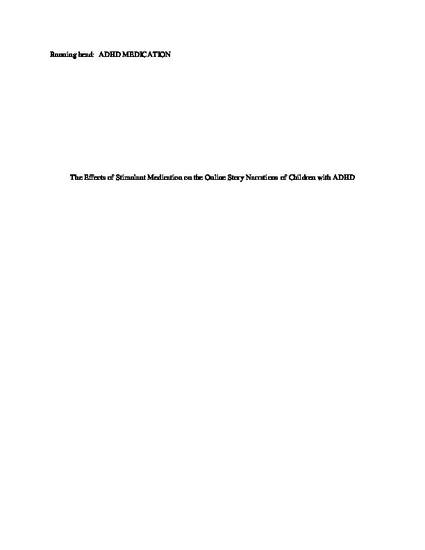
The current study investigated the inclusion of goal-based story events in the online story narrations of children with ADHD, as compared with their peers, and explored the effect of stimulant medication on the narrations in children with ADHD. Children completed a narration task on two separate occasions. Children with ADHD (n = 17) completed one narration on medication and the other one on placebo. Results indicated that narrations of comparison children (n= 25) were significantly more likely than narrations of children with ADHD to include the story’s positive outcome, completion of the story’s overall goal, and specific attempts linked to the goal. Children with ADHD included a larger total number of clauses in their narrations when on stimulant medication than when on placebo, but medication showed no significant effects for any other variables. Results indicate that stimulant medication may not be effective at reducing goal-based story comprehension deficits in children with ADHD.
Available at: http://works.bepress.com/richard_milich/104/
